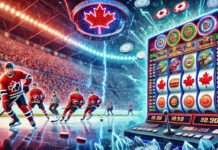
The NHL is one of the wildest leagues in the professional sporting world when it comes to trades. That’s because trades can be made all year round, with just a few key exceptions such as the “trade deadline” in February/March for the playoffs and the famous “Christmas Trade Freeze”. Naturally, this fuels a never-ending cycle of NHL trade rumors, and since each NHL season is so packed, you can always check out the best NHL bets today if you fancy wagering on individual games—of which there are plenty!
With so many rumors flooding the media each month, how can you tell which stories have any substance? Well, that’s precisely what we will discuss today.
Player Approaching Contract End
Although it’s possible for teams to fulfill what’s known as a “buyout clause” in the NHL to complete a trade if an individual is still under contract, these are often very expensive. Therefore, the costs involved often make a rumored trade simply too costly to execute. As for how you can use this when assessing the authenticity of a possible trade, it’s simple.
Look at the contract status of an individual, run the figures, and then decide whether a possible trade holds any weight or not. Alternatively, you can instantly confirm the feasibility of a trade if a player is coming to the end of his contract. It’s even better if negotiations for a new contract with their current team are not going well, at least in terms of predicting whether that trade will materialize or not.
Player Is Not the Best in His Position for That Team
The professional sporting world is ruthless. No matter how much a player might be loved by the fans, at the end of the day, he is simply part of a wider organization that wants to make money. Therefore, if a player is being paid a handsome salary but isn’t the number one pick for his respective position, he is at risk of being traded. This is simply because the return on investment for that player may no longer make sense for the associated team.
Of course, this becomes more significant if a player is in bad form, struggling with injuries, or approaching the end of his career.
Player Has Key Attributes That Suit an Interested Team
Much like other sports, individual NHL teams have their own style of play. The bottom line is that some players just won’t fit into that style, no matter how great they might be at the game. We’ve seen this time and time again in the NHL. Yet, there is another element, which is tied directly to this issue and dictates the possibility of a trade.
If a player isn’t fitting in with his team for whatever reason, but his attributes and style are perfect for another team, it’s easy to connect the dots. However, the rumored trade team must be in need of that player’s skills





